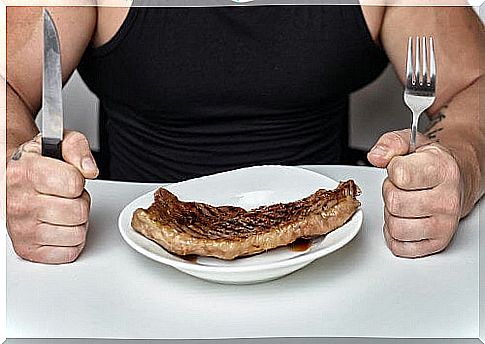Slimming Diets That Do Not Pose A Health Risk – Get To Know Them!

The most popular weight loss diets are most often not balanced in the medium to long term or are simply harmful to your health. So is there a way to lose weight and keep a slim figure for a long time? Can this be achieved without putting your health at unnecessary risk?
The good news is that there are several ways to eat healthy while keeping you healthy and in good shape. In this article, we present three slimming diets whose effectiveness, durability and safety are guaranteed. Discover them and choose the one that suits you best!
Slimming diets that don’t put your health at risk
Proper nutrition is critical to achieving a healthy and balanced weight. To this end, nutritionists recommend following a varied nutritional plan that ensures your body is supplied with all nutrient groups. In addition, as noted in a study published by the Journal of Research in Medical Sciences, it is recommended that you reduce your daily caloric intake at the same time.
In any case , each person’s nutritional and energy requirements vary with age, lifestyle, and health status. Therefore, while there are certain weight loss diets that do not put your health at risk, it is best to always consult a dietitian. Only a properly prepared nutritionist will help you choose a weight loss plan tailored to your needs.
1. Ketogenic diet
While the ketogenic diet has raised much controversy in the past, it is now one of the best weight loss options. The results of using this diet are even supported by research published by the International Journal of Environmental Research and Health Health.
The mechanism of this diet is simple and the slimming effects are quick and effective. First of all, reduce your carbohydrates to a minimum. It is a type of diet that does not limit the amount, only the group of foods. This fact, which allows you to eat without restriction in quantity, greatly facilitates persistence in following this diet.

Difficulty, however, may appear in the first weeks when we may experience some withdrawal syndrome after stopping sugar consumption. However, when this effect disappears, continuation does not cause much trouble. Of course, as long as the diet is well planned.
The ketogenic diet is perfectly safe for your health in the medium to long term, as long as the recommended daily amount of protein of 0.8 g per kg of body weight is not exceeded. There are some modifications that make it easier to follow this diet. For example, many people confirm that restricting carbohydrates after a certain time of the day helps a lot.
2. Intermittent fasting
This type of nutrition alternates between long fasting periods (at least 16 hours) and periods in which food intake is permitted. An analysis of this diet was published in the Annual Review of Nutrition.
According to this analysis, the ketogenic diet has health benefits both in the medium and long term. This effect is attributed to its exceptional effectiveness in losing weight and improving metabolic processes.
The body adapts very well to this diet, making it easy to follow for a long time, and even throughout life. The rules of intermittent fasting take into account the functioning of the endocrine system, which regulates the appetite hormone (ghrelin) shortly after waking up. A useful strategy is to drink coffee only on an empty stomach to induce a feeling of fullness and make the fasting period more bearable.
To maximize results, this diet can be combined with a ketogenic or carbohydrate restricted diet from a certain time of day.
3. The Atlantic diet
There is a version of the Mediterranean diet that gives you great slimming results. It is based on the consumption of fish over meat, according to data from a study published in BMC Public Health. Also, this diet does not use bread as an essential adjunct, nor wine as a “heart-healthy” drink.

It is a diet widely used in the Nordic countries and guarantees the correct level of vitamin D by consuming blue fish and dairy products. Vegetables are also an essential part of it, and carbohydrates are not the basis of the food pyramid. Unrefined cold-pressed oils and nuts are mainly used as fats, although the introduction of avocados is also preferable.
In the case of the Atlantic diet, it is also beneficial to combine it with intermittent fasting to enhance its slimming effect. It is a heart-healthy diet in itself. However, it is necessary to guarantee the diversity of fruit and vegetables and to diversify the species of fish consumed (blue is preferred over white).
What’s the best option when it comes to weight loss diets?
When it comes to the three slimming diets mentioned above, the most difficult variant to implement is probably the ketogenic diet. As in many places, we also use bread as an addition and carbohydrates as the basis of a meal.
Therefore, the need to limit their consumption may result in an initial reluctance to diet. In addition, a person may experience some episodes of fatigue during the first few days until they become accustomed to the state of ketosis.
Therefore, for many people, the Atlantic diet may prove to be the most practical and convenient. It largely resembles the Mediterranean diet, except for increasing the consumption of fish and not prioritizing grains and grains. On the other hand, it significantly reduces alcohol consumption, which is more than a proven strategy if weight loss is your goal.
The slimming effects of any diet can be enhanced by adding an intermittent fasting protocol. If 24-hour fasting is too much of a challenge for those who are hard to get used to, skipping breakfast alone can have tangible results in accelerating weight loss. In any case, be sure to consult a nutritionist before trying any of these methods.









